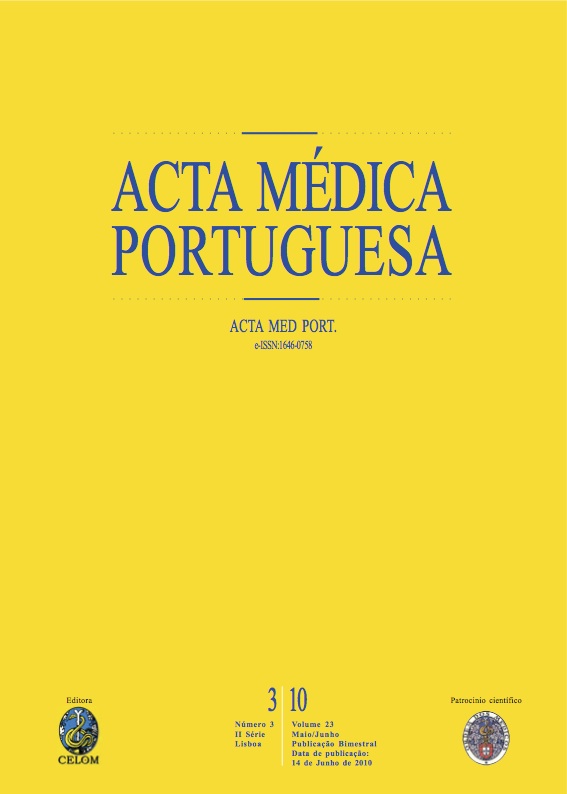Reflexão bioética sobre a situação do idoso e sua familia.
DOI:
https://doi.org/10.20344/amp.630Resumo
The progresses of medicine, by increasing longevity, as well as in geriatrics, by improving the elderly's quality of life led to an understanding of old age based on the therapeutic metaphor. This fact, imbued with positive consequences, yet culturally reinforced by the ideology of perfect health, caused an increasing medicalization of old age, considered a disease to be cured. One of the first perceptions of the human beings' ageing process is gaining awareness of their vulnerability. Individuals start to realize that they no longer have the energy and vitality they once had and, therefore, are more vulnerable and fragile in face of biological or psychological factors tending towards the imbalance. Illness is the exact metaphor of vulnerability and suffering is the bitter face of that experience. The human being is a being destined to die. The death process is part of the life event. For life to be possible, it is necessary for death to take place continuously. During the ageing process, the human being is confronted with other dimensions that may have already been forgotten, due to the feeling of power and Independence experienced during youth and adult life. Today, being old is a problem! In the course of time, people reached naturally old age, for ageing is a part of life. But, in our days, for the first time in History, being old has become a problem. The bottom-line ethical issue is, therefore, socio-cultural. And this because, on one hand, there isn't a place for the elderly in the contemporary society as it used to happen in pre-modern social contexts, and on the other hand, the culture itself does no longer supply (as before) additional symbolic references to help them face this new step of their lives. As such, the principles of Bioethics - autonomy, beneficence, nonmaleficence and justice - could pave the way towards ethical guidelines that could help third age. General Practice/Family Medicine, as a specialty based on globality and continuity of care, can and should represent an important factor of social integration of the elderly in the community, while fostering their autonomy and reducing their institutionalization in order to achieve a greater quality of life.Downloads
Downloads
Como Citar
Edição
Secção
Licença
Todos os artigos publicados na AMP são de acesso aberto e cumprem os requisitos das agências de financiamento ou instituições académicas. Relativamente à utilização por terceiros a AMP rege-se pelos termos da licença Creative Commons ‘Atribuição – Uso Não-Comercial – (CC-BY-NC)’.
É da responsabilidade do autor obter permissão para reproduzir figuras, tabelas, etc., de outras publicações. Após a aceitação de um artigo, os autores serão convidados a preencher uma “Declaração de Responsabilidade Autoral e Partilha de Direitos de Autor “(http://www.actamedicaportuguesa.com/info/AMP-NormasPublicacao.pdf) e a “Declaração de Potenciais Conflitos de Interesse” (http://www.icmje.org/conflicts-of-interest) do ICMJE. Será enviado um e-mail ao autor correspondente, confirmando a receção do manuscrito.
Após a publicação, os autores ficam autorizados a disponibilizar os seus artigos em repositórios das suas instituições de origem, desde que mencionem sempre onde foram publicados e de acordo com a licença Creative Commons









